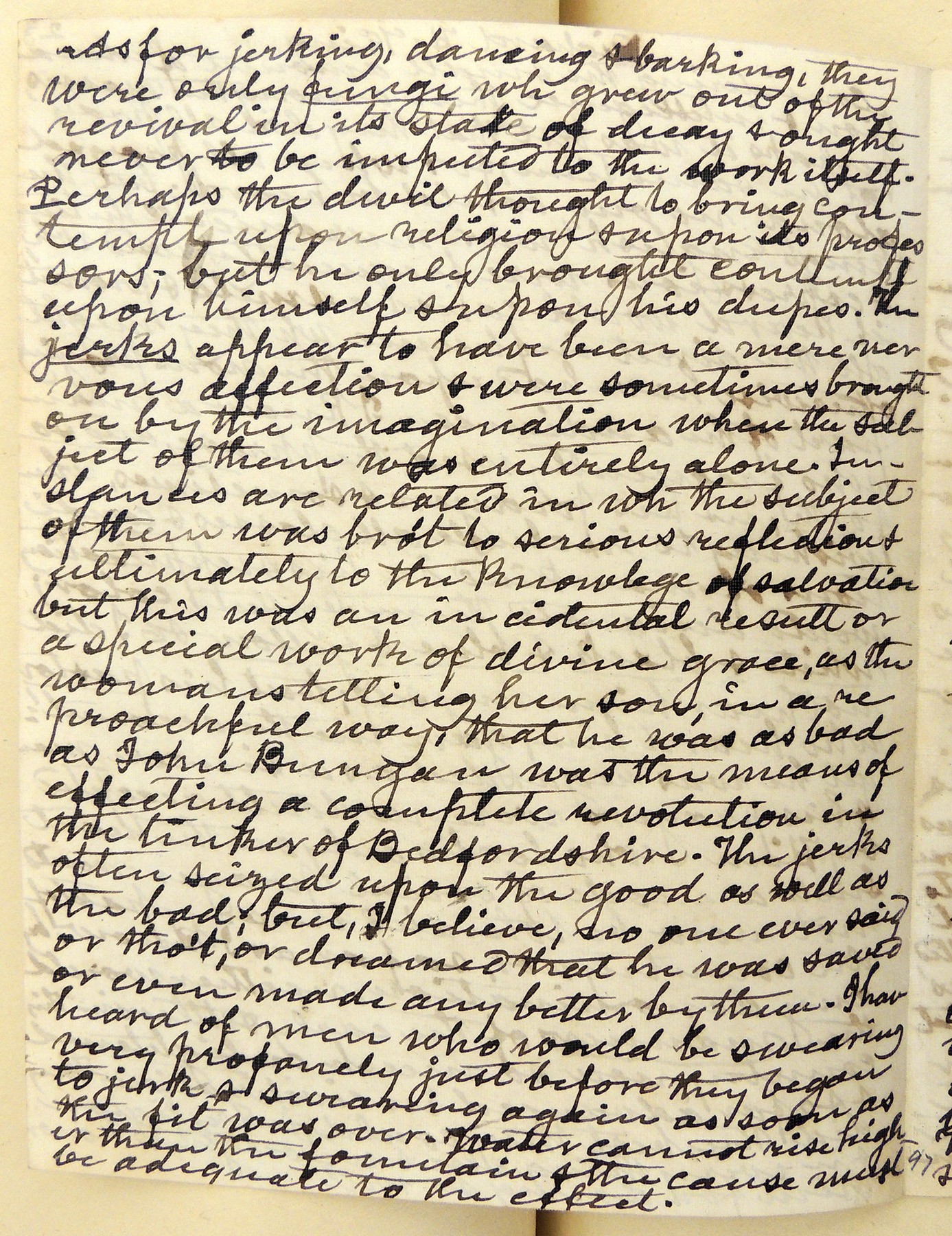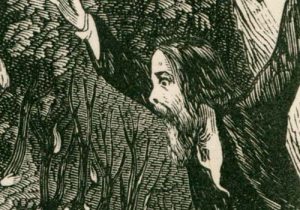Presbyterian clerygman Eli Caruthers condemned the jerks in his manuscript biography of his colleague, Richard Hugg King. His hostile assessment of the bodily exercises typifies the outlook of most Presbyterian clergymen who reflected on the Great Revival decades later.
As for jerking, dancing, & barking, they were only fungi, which grew out of the revival in its state of decay & ought never to be imputed to the work itself. Perhaps the Devil thought to bring contempt religion & upon its professors; but he only brought contempt upon himself & upon his dupes. The jerks appear to have been a mere nervous affection & were sometimes brought on by the imagination when the subject of them was entirely alone. Instances are related in which the subject of them was bro’t to serious reflection & ultimately to the knowledge of salvation, but this was an incidental result or a special work of divine grace, as the woman’s telling her son in a reproachful way, that he was as bad as John Bunyan was the means of effecting a complete revolution n the tinker of Bedfordshire. The jerks often seized upon the good as well as the bad; but, I believe, no one ever said or tho’t or dreamed that he was saved or even made any better by them. I have heard of men who would be swearing very profanely just before they began to jerk & swearing again as soon as the fit was over. Water cannot rise higher than the fountain & the cause must be adequate to the effect.
When about fifteen years of age, I was sent away from home, in the winter, to school & a young lady where I boarded, a daughter of the old teacher, told me that she had been jerked, more than once, I think, so that her hair cracked like a whip & her neck was so sore the next day that she could scarcely move her head; but she said it did her no good & she knew that there was no good in it. The moonlight of religion gives rise to many strange phantasies & to most unaccountable courses of action when people are left to themselves. At a prayer meeting one Sunday afternoon, I saw a young lady whom I had seen not very long before at a ball dancing till midnight, dancing over the floor of the large room in which the prayer meeting was held until she became apparently exhausted & sunk down helpless as in a swoon. Such things are among my boyish or childish recollections, but they were so mysterious to me that they made a lasting impression on my mind. Jerking, dancing, & barking well deserved the name of extravangancies; but they were the production of human depravity acted on by a very partial influence of religion. They yielded no fruits of genuine piety, & were soon driven away like dross from the furnace, or the extra foam from the surface of the ocean when the storm is subsiding.
Source
Eli Caruthers, “Richard Hugg King and His Times,” 1862, 23, Richard Hugg King (1767–1825) Papers, 1816–1862, PC.23, North Carolina State Archives, Raleigh.

